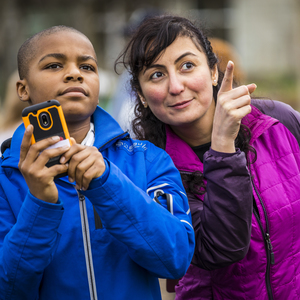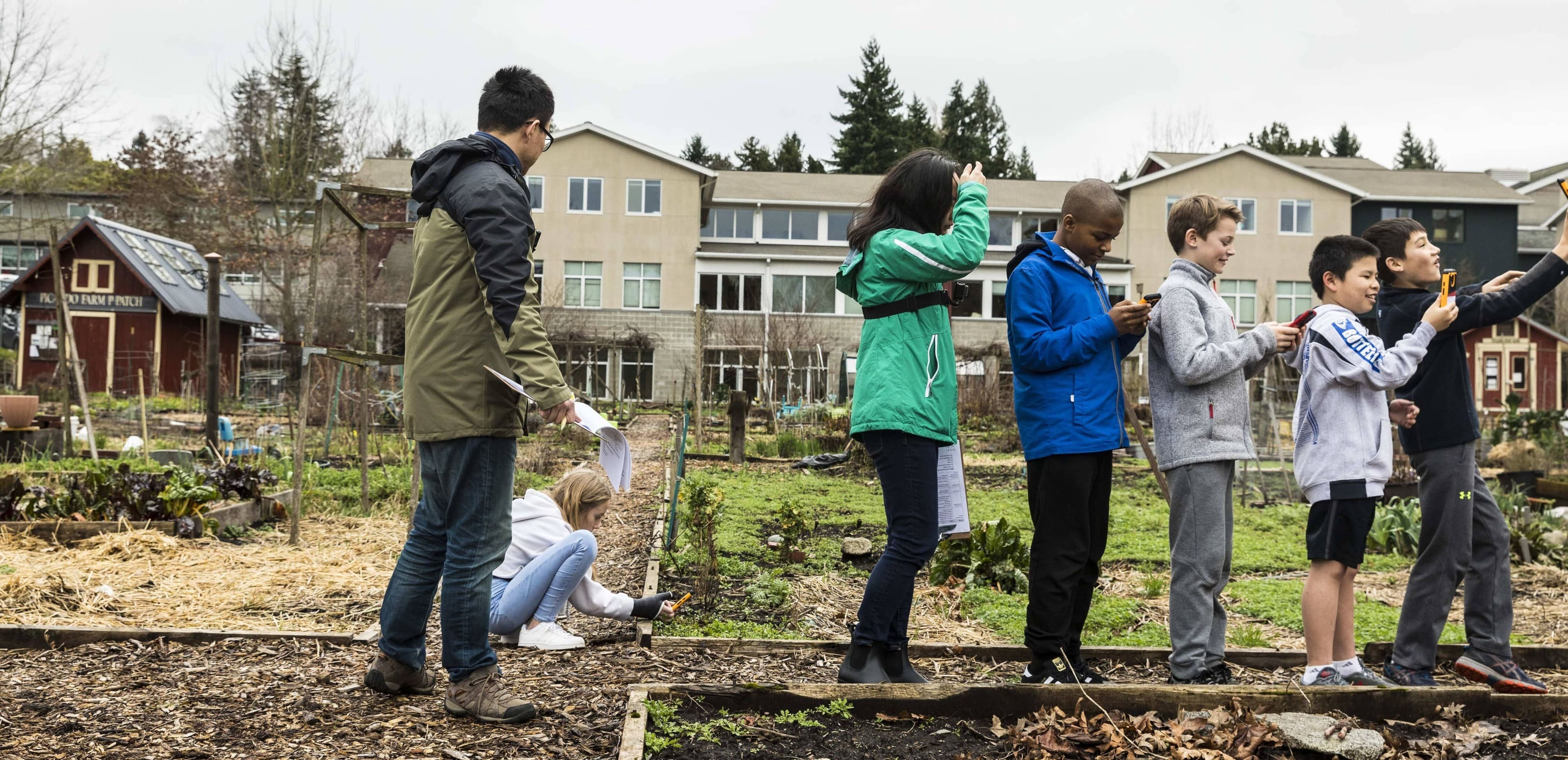Many children in the United States get their first smartphone as they enter their “tween” years, a milestone that can bring a fair amount of tension between parents and their children. To help families better negotiate tweens’ technology use, a group of iSchool researchers wanted to explore how mobile apps can be both entertaining and educational.

After receiving a grant from the UW Innovation Award in 2016, the researchers collaborated with children to codesign an app, NatureCollections, that encourages tweens to explore their natural surroundings, take photos of nature and curate them into themed collections. The goal was to learn how families would engage with the app and how the app would fit into existing family dynamics surrounding technology consumption.
Recently, the researchers released their findings in a paper accepted to CHI, the leading conference on human-computer interaction.
Saba Kawas, an iSchool Ph.D. candidate and lead author of the paper, said tweens are an interesting group to study. They are transitioning into adults and demanding their independence with technology.
“Tweens start becoming more autonomous,” Kawas said. “They’re separating from their parents and becoming less dependent on them. In some instances, the phone becomes a transition object for both parents and tweens to experience that individuation.”
The other researchers included Nicole Kuhn, an iSchool Ph.D. student; Kyle Sorstokke, a junior at the UW; Emily Bascom, a junior majoring in Informatics; Alexis Hiniker, an assistant professor at the iSchool; and Katie Davis, an associate professor at the iSchool.
“As children transition into adolescence, it’s not a given anymore that they will just do whatever their parents say,” Davis said. “They do have more claim to privacy and independence, which can cause tension in the parent-child relationship.”
Kawas and the team recruited 23 children ages 8-12 from 15 families to test the NatureCollections app at home for two weeks. They then interviewed tweens and parents, who were delighted that their children showed a greater interest in the outdoors, after using the app.

One parent mentioned that their 10-year-old tween was “super jazzed” to show them every single picture that he took on the app. One night, he even asked his parents to wake him so that he could take pictures of the moon.
“Parents said that they didn’t have to nudge their children to go outside when they had the app,” Kawas said. “It was the contrary, tweens were the ones who suggested to go outside or asked to visit natural parks to use the NatureCollections app.”
Parents and their tweens valued the family bonding experiences, the researchers noted. Kids were sharing pictures with their parents and parents were asking kids more meaningful questions about their day and experiences with the app.
The results from this study provide new insights for app designers: how can mobile apps better promote positive engagement between parents and tweens as tweens mature independently with technology?
NatureCollections is proof that, with careful negotiations about using technology in the family, a mobile device can be a stepping stone to greater autonomy with technology especially for families with tweens, Davis said.
“[Technology] is not all bad,” Kawas said. “There’s definitely a positive outcome if we are more intentional and thoughtful in the way we design the technology, which is to align with family values and the outcomes that they desire.”
Pictured at top: A group of tweens engaging with NatureCollections in a field test in 2018. Photo by Mark Stone.
